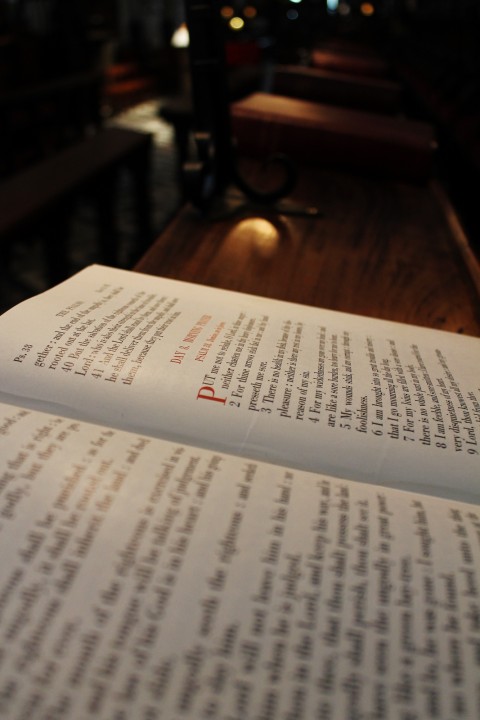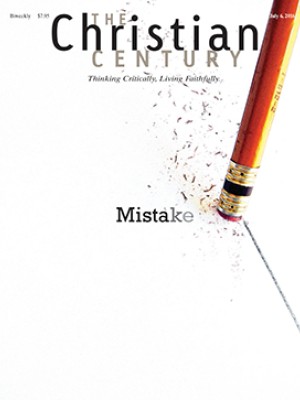In any need or trouble
The prayers of the people call us. When we answer, we invite the possibility that it is we who will be poor, hungry, sick, and in prison.
There are moments when we hear familiar words of liturgy and suddenly realize their subversive power. This has happened to me recently with the “Prayers of the People” in the 1979 Book of Common Prayer.
In Form II of these prayers, the petitioner invites “prayers for the poor, the sick, the hungry, the oppressed, and those in prison. Pray for those in any need or trouble.” I have been realizing that this is not a prayer of pity. It is a prayer to prepare us for the life of discipleship.
We pray for the poor, the sick, the hungry, the oppressed, and those in prison because discipleship in this world cannot be authentic if they are not among our members—and we are not ready to join their ranks. In The Cross and the Lynching Tree, James Cone highlights a 1963 conversation between Reinhold Niebuhr and James Baldwin in which Baldwin claimed that in America, only the “most despised” people truly believe in Christianity. Baldwin went on:
Read our latest issue or browse back issues.
It probably has something to do with the nature of life itself. It forces you, in any extremity, any extreme, to discover what you really live by, whereas most Americans have been for so long, so safe and so sleepy, that they don’t any longer have any real sense of what they live by. I think they really think it may be Coca-Cola.
To be with those who are needy and troubled opens for the rest of us an escape from idolatry. Comfort lends itself to comfortable gods, and we are easily given to the idea that we live by Coca-Cola or Comcast or any other consumer good.
Baldwin’s comment also sheds light on what it might mean for Jesus to say the poor are blessed. It’s not as simple as the state of poverty itself being blessed—it is a troubled status, and those who are poor are not automatic saints. But being in the position of need and trouble opens us to the question of what is really true and what is really valuable. To be poor and oppressed, in prison or sick is to live in a position of critique toward the world as it is. The poor are not blessed as poor so much as blessed by what poverty makes possible. They are ready and open to the possibility of another reality.
Those who are now filled, healthy, and well-off have a harder time embracing an alternative to the world that now provides the good life. The rich young ruler’s problem is not that he has many things so much as that he is unwilling to leave them at the entrance to the kingdom of God. He isn’t ready to challenge the unjust systems by which he became rich. He has ruined his appetite on bread and chips, rather than keeping hungry for the main course of the banquet of the Lamb.
In an economy dominated by market exchange, our prayers for those in any need or trouble call us into a form of economic life beyond exchange. The poor, the sick, the hungry, and the oppressed offer us no reward for our prayers or our care. We receive no thanks for our prayers, no signs of gratitude; all such exchange is disrupted by the secret work of God. We pray without knowing what effect that prayer has. It is given as a gift in an economy of gifts.
Not all those in any need or trouble are beggars. Yet they are the needy; they are on the vulnerable, pariah side of economic life. Thus they are on the side of a God who is also vulnerable by the standards of the market economy. Kelly Johnson writes that beggars “speak whether they intend it or not of God’s own vulnerability in the courts of the unjust.” By praying for those who are poor, hungry, and in prison we are joining in prayers for the church, which wherever it is alive continues to live as Christ lived in the world: the object of oppression. To intercede for the oppressed brings us into the communion of the saints.
When we pray for the poor we follow those who prayed for the Koinonia Farm in Georgia when its white neighbors boycotted the farm for its interracial witness. When we pray for the hungry we pray for those who starve because the productive land of their countries has been converted to export crops to pay off World Bank loans. When we pray for the sick we pray for those forced to live under the smog of coal-burning power plants. When we pray for those in prison we pray for the victims of the “war on drugs” as well as for the pipeline blockaders who chain themselves to bulldozers. In all of this we are praying for Christ as much as to Christ, because it is in the faces of these “scum of the earth” that God keeps showing up.
In this prayer of the people we offer an intercession, but also a word of praise to the God who went before us in our needs and troubles. Hearing it calls us not only to almsgiving but also to the wider work of charity. When we answer this call to love, we invite the possibility that it is we who will be poor, hungry, sick, and in prison, like so many disciples before us. We say and hear this prayer together so that we will have the courage to answer the call of Christ and know that we, the church, are in this risky work together.
And so week after week we pray, we intercede, so that we might pick up our crosses—the intersection of the kingdom of death and the kingdom of God. We ask prayers for those in any need or trouble because we know that when we answer the call to discipleship, they might be us.






